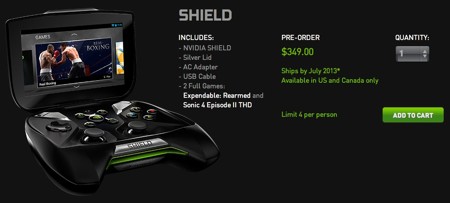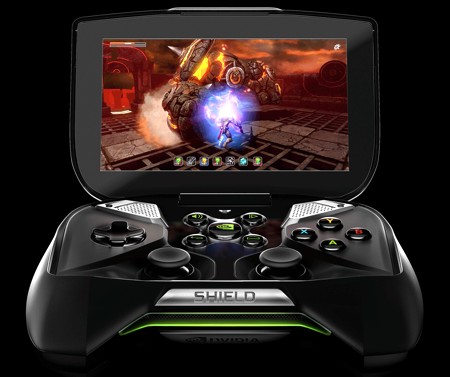Nvidia announces pre-order dates for its newly renamed Project Shield micro-console
All guns blazing

'Project Shield' was only ever a working title, in truth.
That's why Nvidia announced today the official name for its upcoming Android-powered gaming console.
From now on, Nvidia will refer to Project Shield as... (cue drum roll)... "Shield".
Yep, I know.
Anyway, for those that signed up for the Shield newsletter, pre-orders are now being taken. There is a catch, however. And it's rather a big one for Pocket Gamer's UK readers.

Shield will only be available to residents of the US and Canada for the time being. It'll retail for US$349, and will be shipped out to its buyers in July.
Naturally enough, we've asked Nvidia to let us know when UK punters will be able to pick up their Shields and what the expected RRP will be for them over in this neck of the woods.
Ahead of the gameAs a platform, Shield can't fail to impress gamers who may have been underwhelmed by some of the other recently launched / announced Android-powered micro-consoles.
With Nvidia's new Tegra 4 chipset - which packs in 72 GPU caores and four A15 CPU cores - under the Shield's hood, it should be able to handle even the most powerful 'droid games with relative ease.
The Shield micro-console also features a 5-inch 720p "retinal" display, 2GB of RAM, the latest version of the Android OS (4.2.1), 2x2 MIMO wi-fi, GPS, Bluetooth, and an HDMI output.

Via Steam's Big Picture mode, you will be able to stream Steam titles running on a GeForce GTX-powered PC to your Shield device. For now, mind, this feature is still in beta.
Five Tegra-exclusive titles for Tegra 4 devices have also been announced, namely Broken Age, Costume Quest, Flyhunter: Origins, Skiing Fred, and Chuck's Challenge 3D.
So, there you have it. Project Shield is dead, long live Shield!

